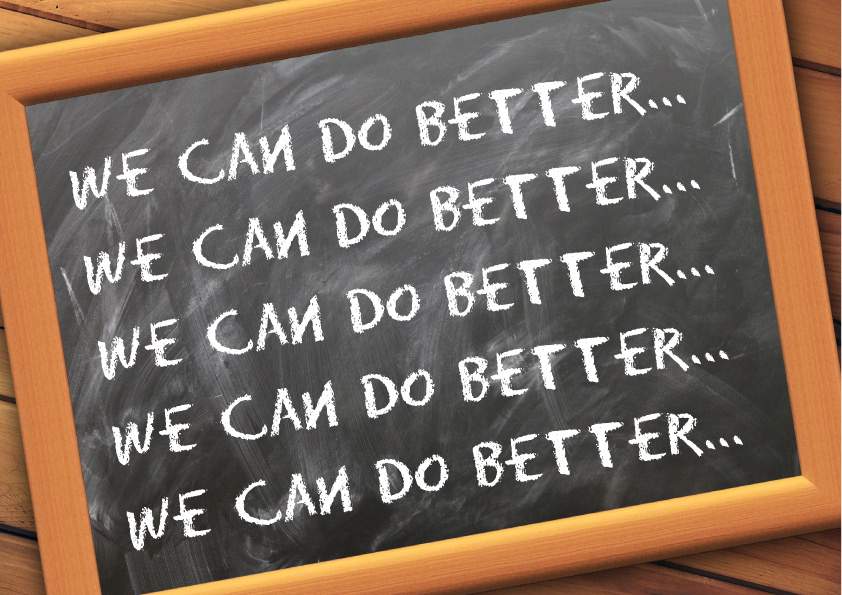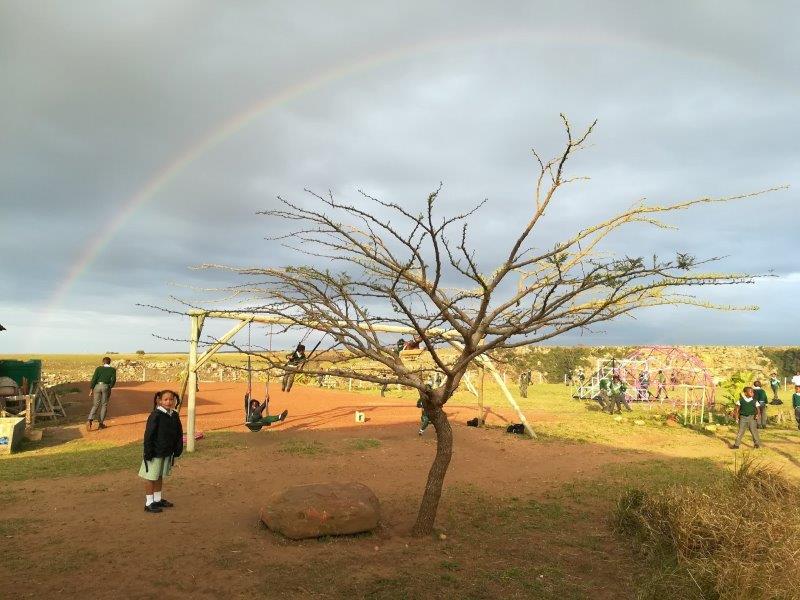South Africa’s basic education system is subpar. Fixing it has proven hard to do, but the country’s response to coronavirus offers hope and some pointers for the future, writes Dr Andrew Venter
FREE TO REPUBLISH (see terms below)
Parents across South Africa are grappling with the impact of the Covid-19 lockdown on our schooling systems.
The more privileged are having to juggle working from home with home schooling, or simply being repeatedly interrupted during their Skype calls by their kids.
The less privileged are trying to figure out how to feed their children given that their children are no longer getting fed at school, with feeding schemes for over 9.6 million pupils suspended.
They’re also worried about when schooling will start again and whether their kids will be able to catch-up, especially given the sorry state of our education system for the majority of South Africans who live in poor or impoverished communities.
The country’s state-run primary and secondary schools generally don’t make the grade compared with the rest of the world and there’s little scope to spend more on improving their performance.
The World Bank’s TCdata360 platform ranks South Africa at 114 out of 151 countries for the quality of its education system.
Africa’s most industrialized economy lags many far poorer countries, on the continent and elsewhere, that also have youthful populations.
Big spender
It’s not like South Africa isn’t serious about investing in education.
Basic education received 19% of the 2020 annual budget – the largest single allocation, and well above the global average of 14%.
However, this is clearly not enough and, as pointed out by some educationists and unions, this year’s allocation was actually a reduced budget once inflation was taken into account.
This was a few weeks before coronavirus gripped the country.
If anything though, funding for education will be harder to come by now and in the future, as South Africa faces a deep depression.
The different ways South Africans have been able to respond to the Covid-19 lockdown has highlighted the inequalities, inefficiencies and redundancies across many sectors, including basic education. It also hints at some solutions.
The problem is a big one.
South Africa has 12.9 million pupils, taught by 433 000 teachers at 25 700 schools.
Nearly all of its pupils (96%) attend government schools.
Good intentions
Putting aside the recent debates about budget allocations, it’s clear that the government, in its policies and intentions, is seeking to invest in basic education for the future of the country.
However, as the World Bank’s report card showed, good intentions haven’t resolved the well-documented shortfalls in school infrastructure and teaching capacity.
As ever, it’s the poor who feel this most keenly.
Education in townships and rural areas, where the country’s black majority is overwhelmingly represented, is not improving.
The causes for this are complex and structural. A lack of funding being only part of it.
Improving education under these conditions will require significantly more investment than is available to the government. But developing innovative partnerships, as is already happening, shows promise.
Middle class
South Africa remains a country of two halves.
Were the World Bank to assess the education standard of its middle class, I suspect it would be rated far higher.
Middle class South Africa invests heavily in educating their children. They do this either through private schools or by paying a top-up fee for an enhanced service within the government system.
This is a priority investment and reflects the obvious insight that our children’s education directly influences their future opportunities.
The privileged education models developed historically for the country’s elite reflects this. At its pinnacle, arguably, is a system of not-for-profit private schools, which but for their African settings, look a lot like some of Britain’s most famous public schools – Eton’s in the veld, if you like.
But there is another fast-growing private tier which offers exciting possibilities and lessons.
This is the realm of private education companies, with Advtech, Curro and the Future Nations Schools developing models to meet the need for a consistent mid-fee education.
Informed by contemporary education needs and opportunities, these schools offer relevant curricula supported by world-class infrastructure, facilities and learning platforms with fees affordable for many of South Africa’s emerging and established middle-class.
E-learning
However, only 4% of South Africa’s pupils have the privilege of a private school education. So there is an urgent need to build on the blended top-up fees model, through which parents partner with the government to improve education opportunities.
The Covid-19 lockdown and the likelihood of social distancing continuing, at least for the medium term, is going to raise the profile of existing partnerships that do work and it will shape a new suite of unexpected opportunities.
Private schools are now on a steep learning curve as they experiment with digital platforms and as learning models evolve.
They are embracing existing digital communication platforms such as Skype, Zoom, Microsoft Teams and Google for Education and other resources to enable e-learning.
Better resourced government schools are doing much the same.
It’s likely that the accelerated adoption of digital communication and e-learning will be a lasting, positive legacy of the Covid-19 crisis.
This is part of a global response and integrating these tools into basic education will be revolutionary.
It will drive learning and behavior change across the school systems, with a globalization of learning models, tools and resources.
In South Africa, we have been seeing a similar process in primary health care, with the government and private sector working together to deal with the crisis in ways unimaginable as recently as January 2020.
Tangible
But the education version of this is going to be far more diverse and tangible.
It will hopefully happen as the Department of Basic Education figures out which systems are working in the private sector and its own, better resourced schools and then forges partnerships with the business sector to harness these systems to support its poorer-resourced schools.
The South African government has been working towards this moment for many years, with established digital and online learning policy frameworks and pilot projects underway across its different provinces.
The crisis presents an opportunity for the government to accelerate changes to the system of learning and behavior change while redirecting the resources needed to enable this education revolution.
Something to think about next time the kids interrupt you during a Skype call.

Dr Andrew Venter is the director of the Cambridge Institute for Sustainability Leadership’s operations in South Africa. Venter joined CISL SA from WILDTRUST, where he was chief executive for 19 years. Over this period, he led the development of WILDTRUST into one of the region’s largest and most influential environmental organisations. This story forms part of The Future We Want Series launched by the CISL and Roving Reporters in response to the Covid-19 pandemic.
You may republish this article, so long as you credit the author and Roving Reporters, and do not change the text. Please include a link back to the original article.

Now read… Bats in the belfry: Time for a rethink on a troubling harvest
Click on the image below to read more stories in our series of Coronavirus Chronicles
References
https://www.oecd.org/pisa/pisaproducts/pisainfocus/48482894.pdf
https://technovation-edu.co.za/the-future-of-education-in-south-africa/
https://www2.deloitte.com/us/en/insights/industry/public-sector/government-trends.html
https://businesstech.co.za/news/government/324621/2-big-changes-coming-to-south-african-schools/
https://www.mancosa.co.za/blog/top-11-trends-in-south-african-education/
https://news.samsung.com/za/the-future-of-education
https://4irsa.org/news/sa-education-system-starts-adapting-for-future-work/
https://businesstech.co.za/news/government/328235/4-big-changes-coming-to-south-african-schools/
http://www.statssa.gov.za/?page_id=737&id=4=4
https://www.goaltracker.org/countries/south-africa/data
https://www.southafricanmi.com/education-statistics.html
https://www.developmenteducationreview.com/issue/issue-6/education-and-sustainable-development
https://www.iol.co.za/news/south-africa/gauteng/please-sir-may-we-have-some-more-teachers-15234653
https://e-classroom.co.za/about-us
https://www.schoolnet.org.za/teacher-resources/south-african-curriculum-resources/
https://www.education.gov.gy/web/index.php/policies/education-for-sustainable-development
https://blogs.worldbank.org/edutech/education-technology-poor-rural
http://nect.org.za/publications/technical-reports/the-state-of-ict-in-education-in-south-africa/
https://www.sutori.com/story/south-african-ict-policy-in-education–4TDZoNikwg7b9U8MpCFi64m4
https://www.brandsouthafrica.com/governance/education/south-africa-turns-on-digital-classrooms
https://home.kpmg/xx/en/home/insights/2019/06/2019-change-readiness-index-tool.html?countryCode=ZA
https://www.weforum.org/agenda/2019/01/why-digitalization-is-the-key-to-exponential-climate-action/














